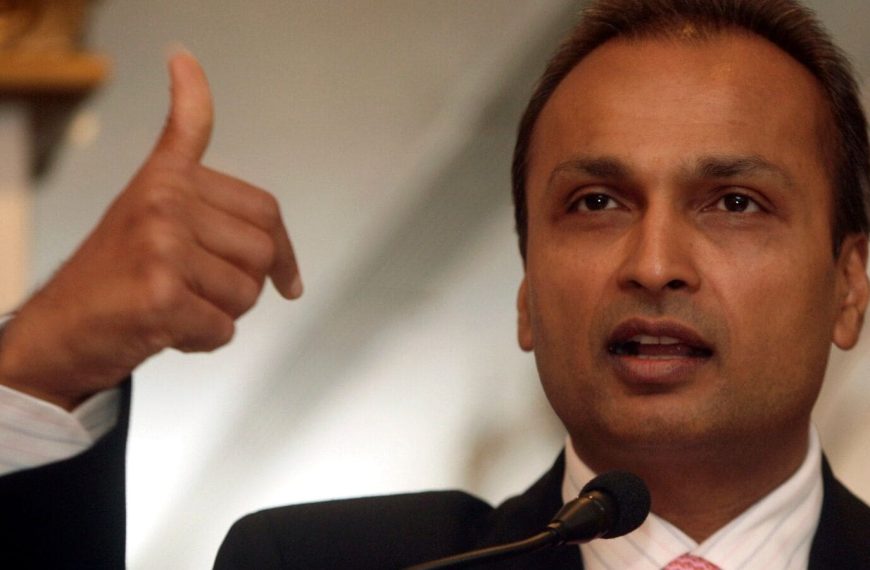Negotiations between the United States and China regarding trade and various pressing issues have hit a standstill, according to sources close to the situation. The two nations seem to be talking past each other, struggling to find common ground. While some level of communication exists, Chinese officials assert that the U.S. has not specified the concrete actions it expects from China concerning the fentanyl crisis, a prerequisite for lifting tariffs.
Surprising Tariff Developments
Recently, a new wave of tariffs surprised officials from both countries. The Trump administration, however, disputes claims that it has not provided clear directives regarding fentanyl. They point to diplomatic messages sent to China through officials, including Ambassador Xie Feng, which reportedly included requests to halt shipments of chemicals used to produce the drug in Mexico, enforce severe penalties on smugglers, and feature condemnatory articles in state-run media.
- Key demands from the U.S. include:
- Curbing chemical exports to Mexico
- Imposing the death penalty for drug traffickers
- Promoting public awareness against the fentanyl trade
The contrasting diplomatic styles of President Donald Trump and President Xi Jinping complicate matters. While Trump has personally engaged in trade negotiations with leaders from other nations, Xi’s approach typically requires that most details be pre-negotiated before a direct conversation occurs.
Lack of Direct Communication
The last conversation between Xi and Trump took place shortly before Trump assumed office, despite indications from the U.S. President in February that a new discussion was imminent. Currently, no plans for a face-to-face meeting between the two leaders are in the works.
A spokesperson from the White House emphasized that the U.S. has communicated its expectations clearly. However, both the Treasury and Commerce Departments, along with China’s financial ministries, have opted not to comment further.
Accusations and Misunderstandings
During a press briefing, Chinese Foreign Ministry spokeswoman Mao Ning accused the U.S. of using fentanyl as a pretext for increasing tariffs. She expressed that any resolution should be based on equality and mutual respect, highlighting China’s lack of information regarding a potential meeting between Xi and Trump.
Chinese officials are advocating for a reestablished communication line between Foreign Minister Wang Yi and National Security Adviser Mike Waltz, similar to arrangements made during the Biden administration. This comes after a missed opportunity when no Trump administration officials reached out during Wang’s recent trip to New York for UN meetings.
Frustration in Beijing
The absence of effective communication is becoming a source of frustration for Chinese officials. Wu Xinbo, an adviser to the Foreign Ministry, noted that the Trump administration appears uncertain about its objectives with China, stating, “There isn’t a coherent policy.”
Xi has instructed his team to maintain composure and strategically respond to U.S. tariffs, opting for targeted measures that inflict minimal domestic backlash. However, as tensions rise, Wang has publicly labeled U.S. tariffs as “evil,” criticizing Trump’s inconsistent approach.
Addressing the Fentanyl Crisis
China has expressed dissatisfaction over the U.S. not recognizing its efforts to combat the fentanyl trade, which has been a rare area of cooperation under the Biden administration. Recently, China released a white paper outlining its initiatives to control fentanyl-related substances, including enhancing its list of regulated chemicals and collaborating with U.S. law enforcement.
Experts like Da Wei, director of the Center for International Security and Strategy at Tsinghua University, argue that China is prepared to take judicial actions against entities involved in the illegal production of fentanyl precursors. However, they also emphasize that the U.S. has yet to provide substantial evidence.
- Da Wei’s insights include:
- The need to address drug consumption in addition to supply issues
- The reality that fentanyl precursors are sourced from multiple countries
Timing of Tariff Announcements
The timing of the recent tariffs has added to China’s irritation, particularly as the first wave coincided with a major holiday, leaving many officials unavailable. The second wave was announced just before a significant political event in Beijing, perceived as a negative signal.
Trump has conveyed mixed messages regarding his stance on China, announcing broad trade policies targeting the nation while also suggesting a willingness to reach a deal. He recently stated, “We want them to invest in the United States,” and expressed optimism about the U.S.-China relationship.
Future Negotiations
As negotiations progress, the U.S. aims to focus on several critical areas, including:
- The fentanyl crisis
- Enforcement of a previous trade agreement
- Job creation in the American heartland
- The dollar’s role in global trade
- Cooperation on ending the war in Ukraine
Moreover, the future of the Chinese-owned app TikTok may become part of the discussions, contingent on U.S. approval for any potential sale.
China recognizes that any negotiation will require concessions, such as increasing its purchases of American products in sectors like energy and agriculture, while also opening up its manufacturing and services sectors to U.S. investment.
Despite the urgency for a resolution, Beijing is cautious about rushing into negotiations that could result in unfavorable outcomes. As the stakes rise, Chinese diplomats are likely to seek assurances that their leader will not face public humiliation, highlighting the complexities of U.S.-China relations.











